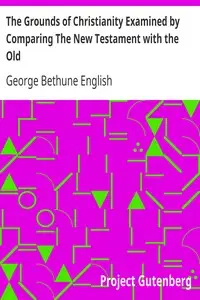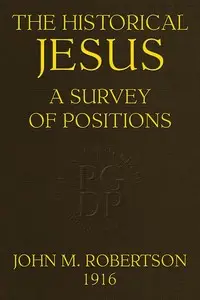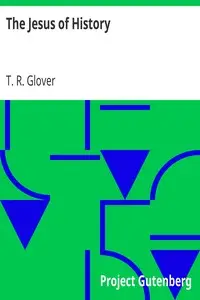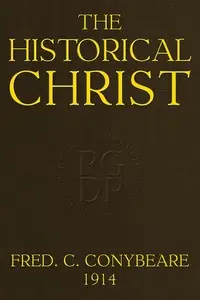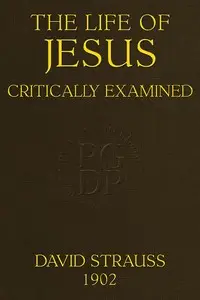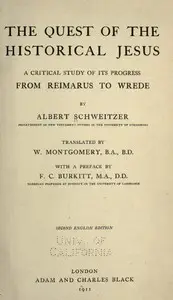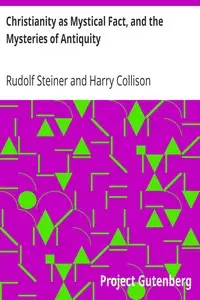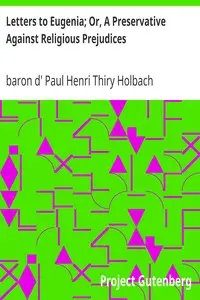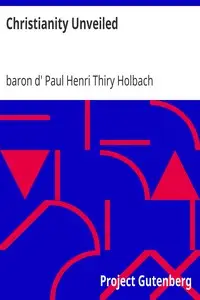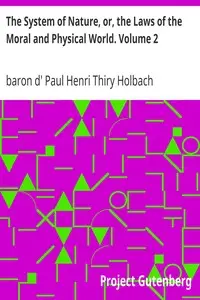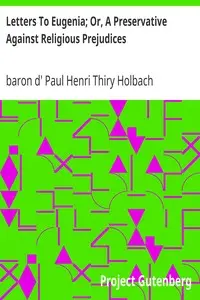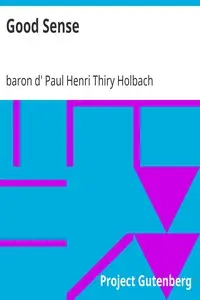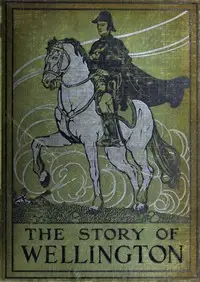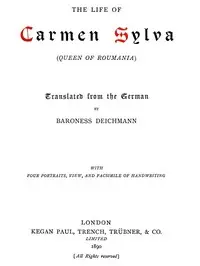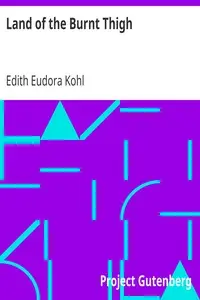"Ecce Homo! Or, A Critical Inquiry into the History of Jesus of Nazareth" by Paul Henri Thiry Holbach is a bold questioning of the traditional stories about Jesus Christ, where the author looks closely at the New Testament, pointing out confusing parts and things that don't quite match up. The book explores the idea that many people follow Christian beliefs without really thinking about the history behind them. It sets out to analyze Jesus in a logical way, doubting claims of miracles and questioning old religious ideas. The overall feeling of the book is one that pushes readers to think for themselves about the roots of Christianity, challenging long-held religious customs and beliefs.
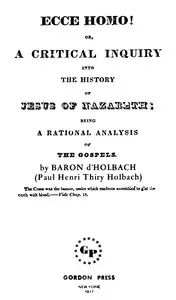
Ecce Homo! Or, A Critical Inquiry into the History of Jesus of Nazareth Being a Rational Analysis of the Gospels
By Paul Henri Thiry Holbach
Dare to question everything you know about Jesus as a rational mind dissects the gospels, challenging the very foundation of Christian belief.
Summary
About the AuthorPaul-Henri Thiry, Baron d'Holbach, known as d'Holbach, was a Franco-German philosopher, encyclopedist and writer, who was a prominent figure in the French Enlightenment. He was born Paul Heinrich Dietrich in Edesheim, near Landau in the Rhenish Palatinate, but lived and worked mainly in Paris, where he kept a salon. He helped in the dissemination of "Protestant and especially German thought", particularly in the field of the sciences, but was best known for his atheism, and for his voluminous writings against religion, the most famous of them being The System of Nature (1770) and The Universal Morality (1776).
Paul-Henri Thiry, Baron d'Holbach, known as d'Holbach, was a Franco-German philosopher, encyclopedist and writer, who was a prominent figure in the French Enlightenment. He was born Paul Heinrich Dietrich in Edesheim, near Landau in the Rhenish Palatinate, but lived and worked mainly in Paris, where he kept a salon. He helped in the dissemination of "Protestant and especially German thought", particularly in the field of the sciences, but was best known for his atheism, and for his voluminous writings against religion, the most famous of them being The System of Nature (1770) and The Universal Morality (1776).

